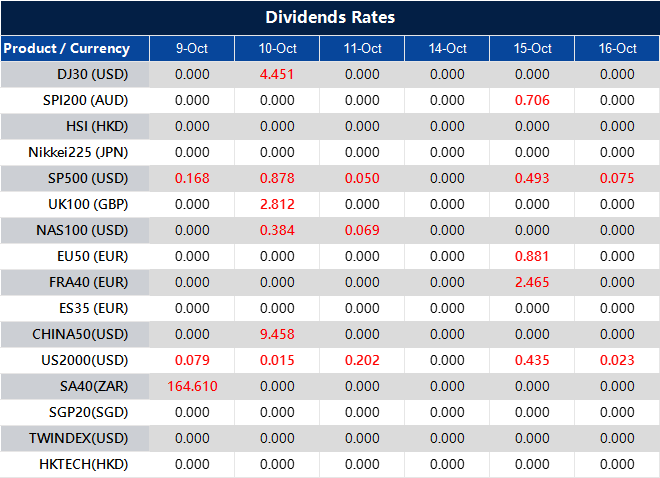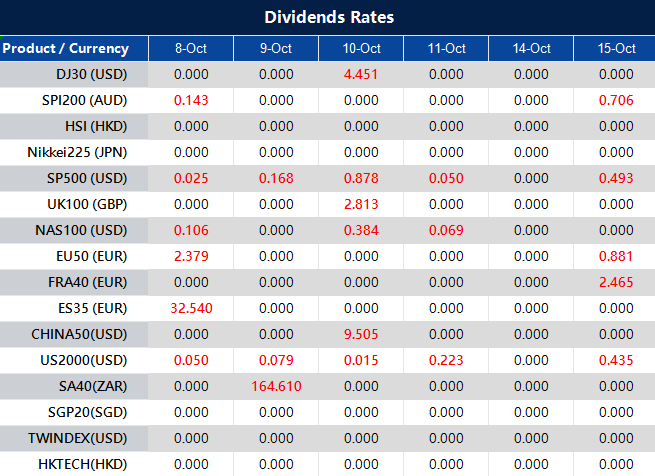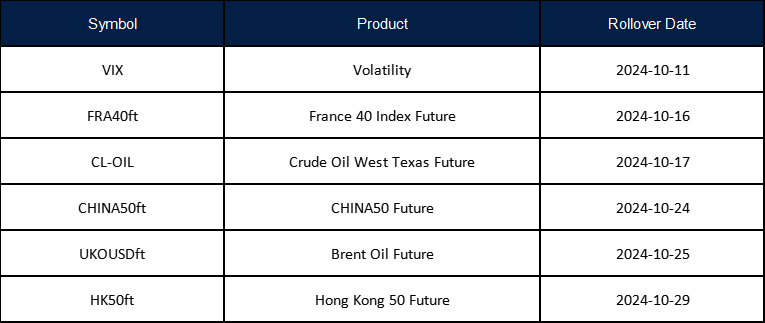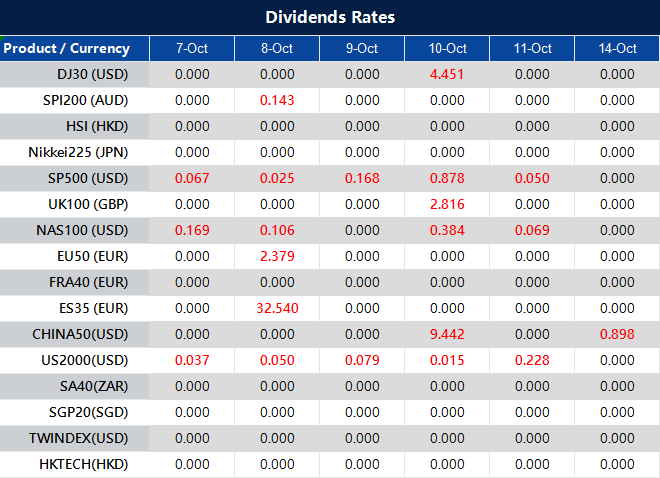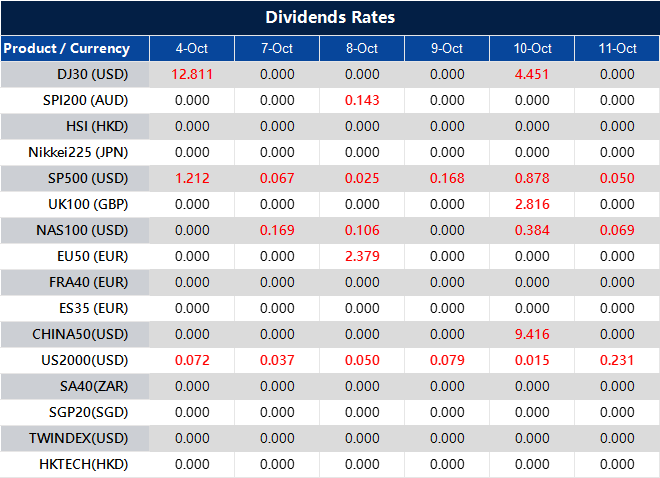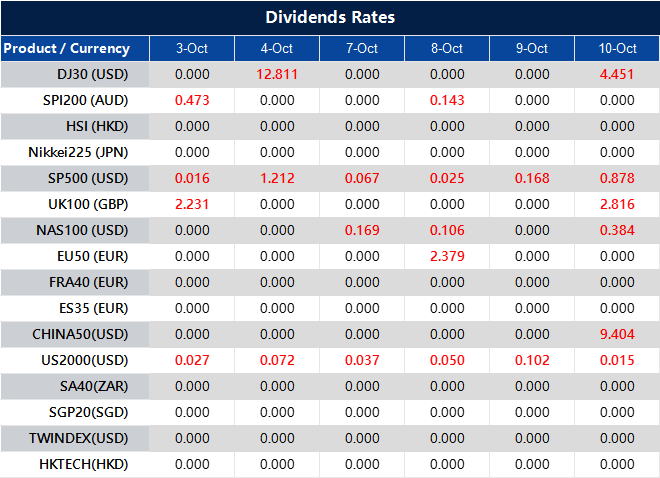Exchange-Traded Funds (ETFs) have long been a popular investment option for traders looking to diversify their portfolios with a broad range of assets, from stocks to commodities. In Hong Kong, ETF trading offers the opportunity to gain exposure to local and global markets. While VT Markets primarily focuses on CFD trading, they also provide select ETF CFDs, offering flexibility for traders seeking exposure to ETFs without owning the underlying assets. This guide will explore how you can trade ETFs in Hong Kong, focusing on the unique offerings by VT Markets.
What Are ETFs?
An Exchange-Traded Fund (ETF) is a basket of securities, including stocks, bonds, or commodities, that can be traded on an exchange, similar to individual stocks. ETFs aim to replicate the performance of a specific index, sector, or commodity, allowing investors to gain exposure to a broad range of assets with a single trade.
Unlike mutual funds, ETFs offer intraday liquidity, meaning they can be bought and sold throughout the trading day, offering more flexibility. For instance, instead of buying individual stocks in the S&P 500 or Hang Seng Index, investors can purchase ETFs that track these indices.
Why Trade ETFs in Hong Kong?
Hong Kong provides traders with several advantages when trading ETFs:
1. Access to Global Markets:
Hong Kong’s unique positioning allows traders to access ETFs tied to both local markets like the Hang Seng Index and global indices like the S&P 500, FTSE 100, and MSCI China Index. This gives traders unparalleled exposure to global opportunities.
2. Tax Efficiency:
Hong Kong does not levy capital gains tax, allowing ETF traders to maximize their profits. This is a considerable advantage over other regions where capital gains may significantly cut into your earnings.
3. Diversification:
Trading ETFs allows you to spread risk across multiple assets or sectors. By investing in an ETF, you reduce the exposure to a single stock or bond, making ETFs a great tool for building a balanced portfolio.
4. Lower Costs:
Compared to mutual funds, ETFs typically have lower management fees, making them a cost-effective investment for traders seeking broad exposure with reduced fees.
Types of ETFs Available in Hong Kong
Here are some common types of ETFs available for trading in Hong Kong:
1. Equity ETFs:
These ETFs track stock market indices such as the Hang Seng Index, providing exposure to a basket of stocks within the index. International options include tracking indices like the S&P 500 or Nikkei 225.
2. Commodity ETFs:
Traders looking to invest in commodities like gold or oil can do so through commodity ETFs, which track the performance of the underlying commodity. Gold ETFs, for example, allow investors to track the price of gold without owning the physical metal.
3. Bond ETFs:
Bond ETFs provide exposure to fixed-income securities. These are generally lower in volatility than equity ETFs and can be an excellent option for investors seeking steady income.
4. Thematic and Sector ETFs:
These ETFs focus on specific sectors (e.g., technology, healthcare) or investment themes (e.g., clean energy or emerging markets), offering investors the opportunity to target niche areas of the market.
ETF Trading with VT Markets
While VT Markets focuses on CFD trading, they offer access to select ETF CFDs, allowing traders to speculate on the price movements of ETFs without owning the underlying assets. This is particularly appealing for traders who prefer short-term speculation or want to use leverage.
Advantages of Trading ETF CFDs with VT Markets:
1. Leverage:
ETF CFDs at VT Markets allow you to trade with leverage, meaning you can control larger positions with a smaller amount of capital. This provides flexibility for traders looking to magnify their potential returns.
2. Short-Selling Opportunities:
With CFDs, traders can short-sell ETFs, profiting from both rising and falling markets. This is especially useful during market downturns when ETF prices might decline.
3. Low-Cost Trading:
VT Markets offers tight spreads and low commissions on ETF CFDs, making it a cost-effective way to gain exposure to broad market indices and sectors.
4. Advanced Trading Platforms:
Trade ETF CFDs on powerful platforms like MetaTrader 4 (MT4) and MetaTrader 5 (MT5), which provide advanced charting tools, technical indicators, and fast execution.
How to Start Trading ETFs in Hong Kong
Here’s a step-by-step guide to getting started with ETF trading in Hong Kong:
1. Open an Account with a Regulated Broker
Choose a broker that offers ETF trading and is regulated by a reputable financial authority. VT Markets, for instance, provides a secure trading environment with access to various ETF CFDs.
2. Research the Available ETFs
Before trading, it’s crucial to research the ETFs available on your chosen platform. Understand the underlying assets or indices the ETF tracks. If you’re looking for exposure to global markets, you might choose ETFs that track the S&P 500 or MSCI World Index.
3. Use a Demo Account
For beginners, starting with a demo account is highly recommended. VT Markets offers demo accounts where traders can practice without risking real capital, helping you to familiarize yourself with ETF CFDs and the platform.
4. Monitor Economic and Market News
ETF prices are influenced by market trends, economic events, and geopolitical developments. Stay updated with economic calendars and financial news to make informed trading decisions.
Risks and Risk Management in ETF Trading
Like any investment, trading ETFs comes with risks. Here’s how you can manage them:
1. Market Risk:
ETFs are subject to fluctuations in the underlying markets or indices. Diversifying across different ETFs can help mitigate exposure to any single asset class.
2. Leverage Risk:
While leverage can amplify gains, it also increases potential losses. It’s crucial to use leverage responsibly and to set stop-loss orders to limit potential downsides.
3. Liquidity Risk:
Some niche ETFs may have lower liquidity, which can result in wider bid-ask spreads. Ensure you choose ETFs with higher trading volumes to reduce trading costs.
4. Tracking Error:
Sometimes, an ETF’s performance may not precisely match the index it tracks due to fees or market inefficiencies. Monitor the ETF’s performance regularly to ensure it aligns with your investment expectations.
FAQ: Trading ETFs in Hong Kong with VT Markets
1. How does ETF trading differ from stock trading?
While both ETFs and stocks are traded on exchanges, there’s a key difference: ETFs represent a basket of assets (such as stocks or bonds), whereas a stock represents ownership in a single company. Therefore, ETFs provide diversification in one trade, reducing the risk tied to any single company. Moreover, ETFs often have lower fees compared to mutual funds, making them a cost-effective way to invest in broader markets.
2. What is the advantage of trading ETF CFDs with VT Markets?
Trading ETF CFDs at VT Markets allows you to speculate on the price movements of ETFs without owning the underlying assets. Additionally, you can benefit from leverage, which means you control larger positions with less capital. VT Markets also offers tight spreads and access to advanced platforms like MetaTrader 4 (MT4) and MetaTrader 5 (MT5), making ETF CFD trading more accessible and cost-effective for both beginners and seasoned traders.
3. Can I short-sell ETFs in Hong Kong?
Yes, with ETF CFDs, you can short-sell, meaning you can profit from falling markets. This is especially useful during market downturns when ETF prices are expected to decline. Trading ETF CFDs with VT Markets offers the flexibility to trade in both rising and falling markets, which is a valuable tool for traders seeking to hedge their positions or profit from market volatility.
4. Are ETFs suitable for long-term investors?
Absolutely! ETFs are an excellent option for long-term investors due to their diversification and generally lower fees compared to actively managed funds. Moreover, in Hong Kong, where there’s no capital gains tax, ETFs offer an even more attractive investment option for those aiming to build wealth over time without worrying about tax implications. For long-term investors, using strategies like buy-and-hold or dollar-cost averaging can minimize risk while maximizing potential gains.
5. What are some common risks associated with ETF trading?
While ETFs are generally considered lower-risk compared to individual stocks, they still carry some risks. For example, market risk is always present, meaning the value of the underlying assets can fluctuate. Additionally, liquidity risk can be a factor with niche or thematic ETFs that have lower trading volumes. Moreover, when trading leveraged ETF CFDs, the risk of significant losses increases, especially if markets move against you. To mitigate these risks, it’s important to use tools like stop-loss orders and to diversify across various asset classes.
6. How can I use ETFs to hedge my portfolio?
ETFs, especially inverse ETFs, can be used to hedge against market downturns. For instance, if you hold a large portfolio of stocks and anticipate a market decline, you can purchase an inverse ETF that profits when the underlying index falls. This can help offset losses in your portfolio. VT Markets offers ETF CFDs, providing opportunities for short-selling, allowing traders to hedge effectively and minimize risk.
7. Is ETF trading suitable for beginners?
Yes, ETF trading is an excellent option for beginners. Since ETFs offer diversification, you can gain exposure to a wide array of stocks, bonds, or sectors with a single trade, which helps reduce risk. Additionally, platforms like VT Markets provide educational resources, demo accounts, and access to global ETFs, making it easy for new traders to practice and learn without committing real capital initially. Beginners should focus on broad-market ETFs and avoid leveraged products until they gain more experience.
8. How are ETF CFDs different from regular ETFs?
ETF CFDs allow traders to speculate on the price movement of an ETF without owning the actual assets within the fund. This means you can use leverage, and you can also profit from falling markets by short-selling the CFD. On the other hand, buying a regular ETF involves purchasing a portion of the underlying assets that make up the ETF, which is better suited for long-term investments. VT Markets offers ETF CFDs, which are ideal for traders seeking flexibility and the potential for higher returns through leverage.
Conclusion: ETFs Trading in Hong Kong with VT Markets
ETF trading in Hong Kong offers traders access to a diverse range of asset classes, sectors, and markets. With no capital gains tax and access to global indices, trading ETFs can be an excellent way to diversify your portfolio. By trading ETF CFDs with VT Markets, traders can enjoy leveraged trading, short-selling opportunities, and competitive fees.
Open an account with VT Markets today and take advantage of their advanced trading tools and access to global ETF CFDs. Whether you’re a beginner or a seasoned trader, VT Markets offers the platform and resources to help you succeed.
Trade ETFs with VT Markets Today!
Gain access to global markets, low-cost trading, and leverage on ETFs with VT Markets. Start your trading journey now on MetaTrader 4 (MT4) and MetaTrader 5 (MT5). Open an account today and take your ETF trading to the next level!
